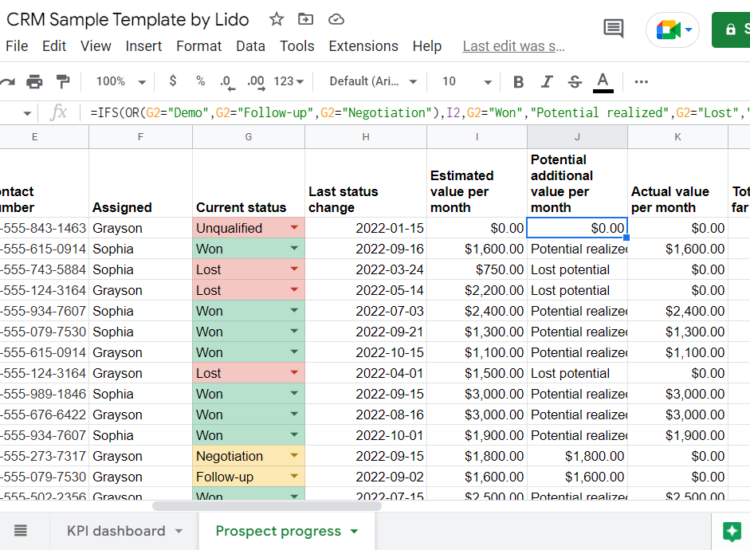E-commerce sales are projected to surpass $6 trillion by 2024, placing immense pressure on website performance. Slow loading times lead to lost sales and frustrated customers. SSD VPS hosting offers a solution by providing the speed and reliability needed to handle high traffic volumes and resource-intensive applications. However, choosing the right provider and plan requires careful consideration.
Toc
- 1. Understanding SSD VPS Hosting for E-commerce Success
- 2. Related articles 01:
- 3. Choosing the Right SSD VPS Hosting Provider
- 4. Essential Features of Top-Tier SSD VPS Hosting for E-commerce
- 5. Related articles 02:
- 6. Optimizing Your E-commerce Website for Peak Performance on SSD VPS Hosting
- 7. Planning Your SSD VPS Hosting Strategy: Budget, Needs, and Location
- 8. Conclusion
Understanding SSD VPS Hosting for E-commerce Success

What is SSD VPS Hosting?
SSD VPS hosting combines the advantages of Virtual Private Servers (VPS) with the high-speed capabilities of solid-state drives (SSDs). A VPS server simulates a dedicated server within a larger physical server, providing each user with dedicated resources and an independent operating system. This configuration enhances performance and reliability, making it particularly beneficial for e-commerce businesses that depend on fast, stable websites.
The adoption of SSD technology significantly accelerates website performance. SSDs offer significantly faster read and write speeds compared to traditional hard disk drives (HDDs), resulting in quicker data retrieval and improved site performance. For e-commerce websites, where every second counts, faster loading speeds can lead to higher conversion rates and improved customer satisfaction.
Moreover, the isolation provided by a VPS environment enhances security, which is crucial for protecting sensitive customer data and financial transactions. When you choose SSD VPS hosting, you are not just opting for speed; you are investing in a secure and efficient hosting solution.
The Importance of SSD VPS for E-commerce
Website speed has a direct impact on conversion rates and SEO rankings. Research indicates that even a one-second delay in page load time can lead to a 7% reduction in conversions. Google has also confirmed that site speed is a ranking factor in its algorithms. Therefore, investing in SSD VPS hosting is not merely a technical decision; it is a strategic business move for any e-commerce entity aiming to thrive online.
Beyond conversion rates and SEO, website speed significantly impacts customer satisfaction and loyalty. Studies by the Baymard Institute consistently show that slow loading times lead to higher bounce rates and abandoned carts. Furthermore, faster loading times are correlated with increased average order value (AOV), as customers are more likely to complete purchases on a responsive site.
With SSD VPS hosting, businesses can expect improved uptime and stability. Unlike shared hosting, where resources are stretched thin among multiple users, a VPS provides dedicated resources to your site. This ensures that during traffic spikes—common during promotional events or holiday seasons—your site can handle increased loads without crashing or slowing down. Additionally, the security features associated with VPS hosting, such as firewalls and DDoS protection, are vital for safeguarding customer transactions and sensitive information.
Managed vs. Unmanaged SSD VPS Hosting
When selecting SSD VPS hosting, businesses must decide between managed and unmanaged options. Managed VPS hosting means that the hosting provider takes care of server management tasks, including setup, maintenance, backups, and security updates. This is ideal for e-commerce businesses that may lack the technical expertise or resources to manage their server environment effectively. Managed services ensure that your site remains secure, up-to-date, and optimized without requiring constant oversight from your team.
While managed VPS hosting offers convenience, it comes at a higher cost compared to unmanaged options. The level of customization available with managed services might also be limited, potentially hindering businesses requiring specific server configurations. Conversely, unmanaged SSD VPS hosting grants complete control over your server environment. This option is suitable for tech-savvy businesses wanting the flexibility to customize their hosting environment according to specific needs. However, it necessitates a certain level of technical knowledge and expertise to manage effectively. Businesses must weigh their technical capabilities against their desire for control when deciding between managed and unmanaged SSD VPS hosting.
2. https://minidanang.com/mmoga-hybrid-cloud-hosting-a-complete-guide-for-it-managers/
3. https://minidanang.com/mmoga-choosing-the-best-web-hosting-platform-for-your-small-business/
4. https://minidanang.com/mmoga-cloud-storage-web-hosting-the-ultimate-guide-for-e-commerce-businesses/
5. https://minidanang.com/mmoga-honkai-star-rail-private-server-a-comprehensive-guide/
Choosing the Right SSD VPS Hosting Provider
Vultr VPS
Vultr VPS is a leading player in the SSD VPS hosting arena, known for its extensive global data center presence. This allows customers to choose a server location that minimizes latency for their target audience, which is crucial for e-commerce businesses aiming to enhance user experience. Vultr offers a straightforward pricing model with various plans catering to different needs, making it a popular choice for those seeking cheap VPS options without compromising performance.
The performance of Vultr VPS is commendable, with SSD storage ensuring fast read and write speeds. However, it is important to note that Vultr primarily offers unmanaged plans, which may require a certain level of technical expertise to configure and maintain. For e-commerce businesses without dedicated IT resources, this could be a drawback.
Linode
Linode stands out as another top contender in the SSD VPS hosting market, recognized for its robust performance and user-friendly interface. Linode offers both managed and unmanaged VPS options, allowing businesses to select the level of support that best suits their needs. With a strong emphasis on customer service, Linode provides extensive documentation and community support, making it easier for users to troubleshoot and optimize their hosting environment.
Linode’s pricing structure is competitive, and it offers a variety of configurations to choose from, enabling e-commerce businesses to scale their resources easily as they grow. While Linode is an excellent choice for many, businesses should evaluate whether they prefer the additional support that managed VPS hosting provides.
SSDNodes
SSDNodes specializes in SSD-based VPS hosting, delivering exceptional performance at affordable prices. This provider is particularly appealing to e-commerce businesses looking for cost-effective solutions without sacrificing quality. SSDNodes offers multiple data center locations, allowing businesses to choose a server location that caters to their audience effectively.
The simplicity of SSDNodes’ offerings makes it easy for users to get started quickly. However, the level of management and support may not be as comprehensive as some of the other providers, so businesses must consider their internal capabilities when selecting SSDNodes for their hosting needs.
Other Providers
While Vultr, Linode, and SSDNodes are popular choices, other reputable providers such as A2 Hosting and BigScoots also offer SSD VPS hosting tailored for e-commerce businesses. A2 Hosting is renowned for its speed optimization features, including Turbo plans that significantly enhance performance. BigScoots stands out for its fully managed VPS hosting, ensuring that customers receive hands-on support for their hosting environment.
When evaluating providers, e-commerce businesses should consider their specific requirements, including budget, level of technical expertise, and the importance of customer support. Beyond the features listed, consider the provider’s network infrastructure. A robust network with redundant connections and extensive peering agreements ensures better uptime and lower latency, crucial for maintaining a high-performing e-commerce site. Providers with strong network architectures can better withstand network outages and deliver consistent performance across different geographic locations.
Comparison Table
| Provider | Pricing | Managed/Unmanaged | Data Centers | Support |
|---|---|---|---|---|
| Vultr VPS | Affordable | Unmanaged | Global | Community Support |
| Linode | Competitive | Managed/Unmanaged | Global | Excellent Support |
| SSDNodes | Very Affordable | Unmanaged | Multiple | Limited Support |
| A2 Hosting | Moderate | Managed | Multiple | Great Support |
| BigScoots | Premium | Fully Managed | Multiple | Exceptional Support |
Essential Features of Top-Tier SSD VPS Hosting for E-commerce
Scalability
For e-commerce businesses, scalability is critical to accommodate fluctuating traffic patterns, especially during peak sales periods like Black Friday or holiday seasons. Look for SSD VPS hosting plans that allow for easy resource scaling, including CPU, RAM, and storage. Many providers offer flexible plans that enable businesses to increase their resources as needed without significant downtime or complications.
Security
Security features are paramount for e-commerce websites. Ensure that your chosen SSD VPS hosting provider offers robust security measures, including firewalls, DDoS protection, SSL certificates, and regular security updates. A secure environment not only protects your business but also builds trust with your customers, ensuring that their sensitive data remains safe during transactions.
Uptime Guarantee
Downtime can severely impact sales and damage your business’s reputation. When selecting an SSD VPS hosting provider, look for those that offer a solid uptime guarantee, ideally 99.9% or higher. This assurance means that your website will be consistently available to customers, minimizing potential revenue losses.
1. https://minidanang.com/mmoga-cloud-storage-web-hosting-the-ultimate-guide-for-e-commerce-businesses/
2. https://minidanang.com/mmoga-honkai-star-rail-private-server-a-comprehensive-guide/
4. https://minidanang.com/mmoga-choosing-the-best-web-hosting-platform-for-your-small-business/
5. https://minidanang.com/mmoga-hybrid-cloud-hosting-a-complete-guide-for-it-managers/
Customer Support
Responsive and knowledgeable customer support is crucial, especially for resolving technical issues quickly. Evaluate the support options provided by different SSD VPS hosting providers, including live chat, phone support, and email. Check customer reviews to gauge response times and overall satisfaction with the support offered.
Optimizing Your E-commerce Website for Peak Performance on SSD VPS Hosting
Tips for Improving Website Performance
Once you have chosen an SSD VPS hosting provider, it’s essential to optimize your e-commerce website to fully leverage the benefits of SSD technology. Focus on optimizing website code, images, and databases to improve loading times. Compress images, use efficient coding practices, and implement lazy loading techniques to enhance performance.
Caching Strategies
Caching is another effective way to improve website performance. Utilize caching techniques, such as object caching and page caching, to store frequently accessed data and serve it quickly to users. This reduces server load and enhances the overall user experience, leading to higher conversion rates for your e-commerce business.
Content Delivery Network (CDN)
Consider implementing a Content Delivery Network (CDN) to further enhance website speed and performance. A CDN distributes your website’s content across multiple servers worldwide, allowing users to access data from a location closer to them. This not only reduces latency but also improves loading times, making it an excellent addition to your SSD VPS hosting strategy.
Current Trends in E-commerce Hosting
A notable current trend is the increasing adoption of serverless computing architectures for e-commerce platforms. Serverless functions, offered by providers like AWS Lambda and Google Cloud Functions, allow businesses to scale resources dynamically based on real-time demand, potentially reducing hosting costs and improving efficiency during traffic spikes. This approach could complement or even replace traditional VPS hosting for certain e-commerce functions in the future.
Planning Your SSD VPS Hosting Strategy: Budget, Needs, and Location
Assessing Your Needs
Before selecting an SSD VPS hosting plan, assess your e-commerce website’s current and future needs. Consider factors such as expected traffic volume, storage requirements, bandwidth, and resource needs. This assessment will help you choose a plan that aligns with your business goals and ensures optimal performance.
Budget Considerations
Pricing models can vary significantly between SSD VPS hosting providers. While it’s tempting to opt for the cheapest option available, consider the balance between cost and performance. Look for plans that fit your budget while still providing the necessary features and resources to support your e-commerce business.
Choosing the Right Location
The geographical location of your server can impact your site’s performance. Selecting a data center location close to your target audience can reduce latency and improve page load times. Most SSD VPS hosting providers allow you to choose from multiple data center locations, so take advantage of this feature to optimize your e-commerce site’s performance.
Conclusion
Choosing the right SSD VPS hosting for your e-commerce business involves careful consideration of speed, security, scalability, and customer support. By investing in SSD VPS hosting, you position your business for success in a competitive online marketplace. Evaluate the features and offerings of various providers like Vultr, Linode, and SSDNodes to find the best fit for your specific needs. With the right hosting solution, you can ensure a seamless shopping experience for your customers, ultimately driving growth and increasing sales. Start exploring your options today!










